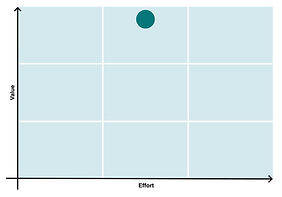Growth Hacking
Leverage our curated growth hacks for software development. Implementing these proven tactics will increase your follower base, brand recognition, and foster a loyal community of users who actively promote your software.
Available Patterns:
83
Customer Advocacy

Advocacy Programs
Implementing an advocacy program involves creating a structured initiative that incentivizes and empowers users to promote the software to their networks. Through this program, loyal customers become brand advocates, spreading positive word-of-mouth and driving referrals, ultimately contributing to the software's growth and success.
Experimentation and Iteration

Agile Development Methodologies
Implementing agile development methodologies involves adopting an iterative and collaborative approach to software development, emphasizing flexibility, responsiveness, and continuous improvement. Agile methodologies, such as Scrum or Kanban, enable teams to break down complex projects into manageable increments, prioritize tasks, and iterate quickly based on feedback and changing requirements.
Experimentation and Iteration

User Testing/Usability Studies
Conducting user testing and usability studies involves systematically observing users as they interact with a product or service to gather insights into their behavior, preferences, and pain points. This process helps teams identify usability issues, validate design decisions, and iteratively improve the user experience.
Customer Advocacy

Reviews & Testimonials
Encouraging satisfied customers to leave reviews and testimonials involves actively soliciting feedback from happy customers and encouraging them to share their positive experiences with others. This process helps build social proof, credibility, and trust in the brand, ultimately influencing potential customers' purchasing decisions.
Experimentation and Iteration

Embrace Failure
Embracing failure as an opportunity to learn and iterate involves fostering a culture within an organization that encourages experimentation, risk-taking, and learning from setbacks. Instead of viewing failure as a negative outcome, teams perceive it as a valuable source of insights and lessons that can inform future decisions and improvements.
Experimentation and Iteration

Feedback and Market Iteration
Iterating based on user feedback and market validation involves continuously refining and improving products or services in response to insights gathered from users and market data. This iterative process allows teams to address user needs, enhance product-market fit, and stay responsive to evolving market dynamics.